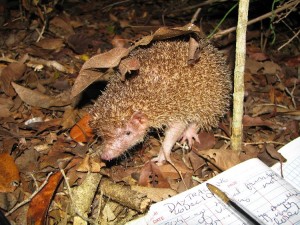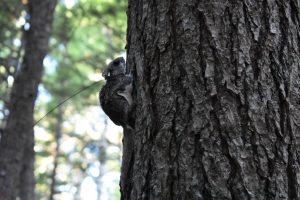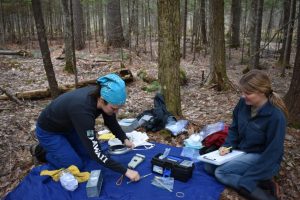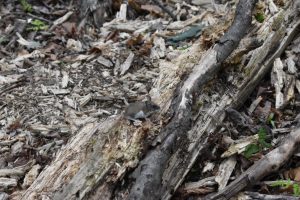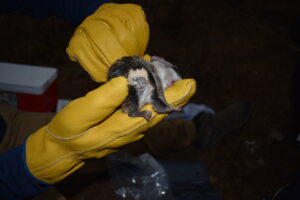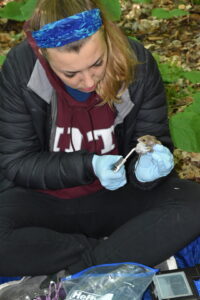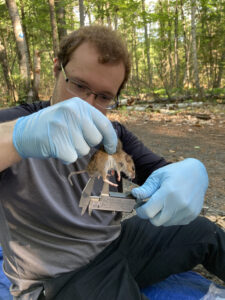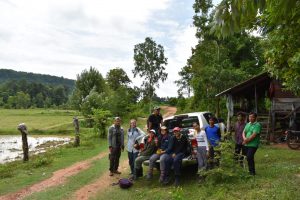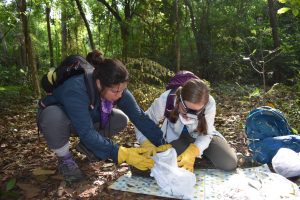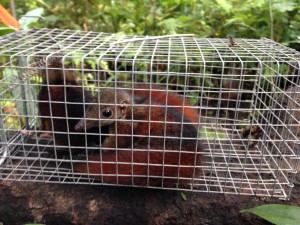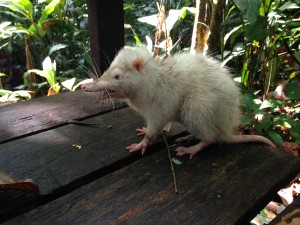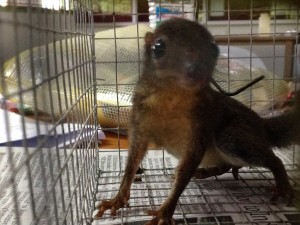Research
We are a group of evolutionary and ecological physiologists primarily interested in the comparative energetics and the evolution of mammalian temperature regulation. Research in the Levesque Lab lies at the intersections of comparative physiology, ecology and evolutionary biology, and the synergies between these disciplines. Through field and laboratory based experiments, we seek to understand how rigidity or flexibility in metabolism and body temperature regulation affects the energetics of a species, and how their evolutionary history has shaped these patterns.
The data obtained through studying thermoregulation and energetics can have multiple applications. By understanding the dynamics of the relationship between an animal and its thermal environment, we can better predict energy budgets and responses to changes in climate and resource availability. As such, physiological data are vital for the development of realistic, predictive, climate-change models; a large part of the newly emerging field of conservation physiology. The study of these patterns over a wide range of species, especially those retaining pleisiomorphic (ancestral) characteristics, can allow for the formulation and testing of hypotheses on the evolution of thermoregulatory patterns, such as the evolution of endothermy.
Current Research
Small Mammal Physiology in Relation to Temperature, Humidity, and Climate Change
The primary goal of the this research is to increase our understanding of the interactions between environmental temperature and performance in mammals, using small mammals as model species.
Read more about this research here.
One Health and the Environment: Climate Change, Small Mammals, and Disease
In collaboration with Sue Ishaq and Pauline Kamath (UMaine School of Food and Agriculture) and Jason Johnston (UMaine Presque Isle) we are studying the impacts of climate change on small mammal range shifts and how this impacts infectious diseases. You can read more about this research here, and hear more from the students here.
Tropical Small Mammal Physiology in a Changing World
In collaboration with Michael Ceballos (University of Arkansas) and the NSF funded Food, Energy, Water, and Ecosystems Resources (FEWER) Research Coordination Network (http://fewer.mirc-coe.org/) this research seeks to fill the gaps in our understanding of small mammal physiology in the tropics. Initial research will take place this summer with funded spots for undergraduate each summer (applications are currently closed but check http://www.ceballoslab.com/nsf-reu-iaim/ for spots for next year).
Borneo Small Mammal Thermoregulation

Current Students: Abe Grunwald (Honors Thesis student), Eric Brown (PhD)
In collaboration with Andrew Alek Tuen (Universiti Malaysia Sarawak), Faisal Ali Khan (Universiti Malaysia Sarawak) and Barry Lovegrove (University of KwaZulu-Natal).
We recently received funding from the National Science Foundation (NSF CAREER: Physiological and Behavioral Determinants of Energy Use in Tropical Mammals) to continue this research. Join us!
You can read more about this research here.
If you are interested in One Health and convergent research check out our new NSF Research Traineeship “Convergence of Social and Biophysical Sciences to Optimize Training in One Health“.

